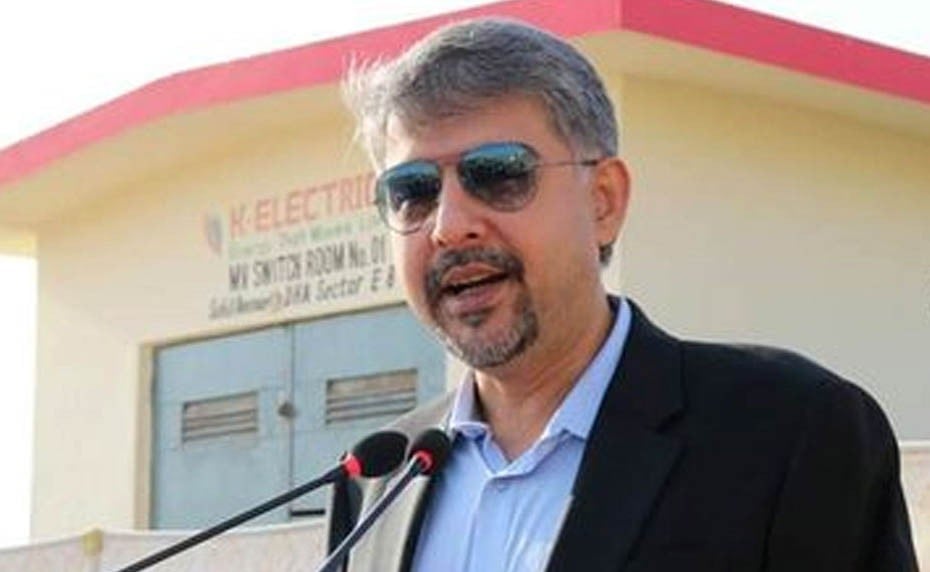
Karachi has experienced a wave of terror during the last few weeks of 2018, particularly the deadly attack on the Chinese consulate and killing of MQM-P’s former lawmaker Ali Raza Abidi

Although tremendous progress has been made over the past five years in combating violence of all forms in Karachi, thanks to continuous operations by the law enforcement agencies, especially paramilitary Rangers, the last few weeks of 2018 experienced a wave of terror, particularly the deadly attack on Chinese consulate and killing of the Muttahida Qaumi Movement-Pakistan’s former lawmaker Ali Raza Abidi.
The wave started on November 17 when three people were killed in a bomb attack in the Quaidabad neighbourhood. Luckily, only one of the two bombs planted there exploded, so the casualties did not rise. Law enforcement officials believe the Jeay Sindh Muttahida Mahaz (JSMM) -- a proscribed Sindhi separatist group -- is behind the attack.
On November 23, three armed men belonging to the Baloch Liberation Army (BLA), a proscribed Baloch separatist group, attempted to storm the Chinese consulate in Clifton area, killing two policemen and two Pakistani visa applicants -- a father and a son who had arrived from Quetta for a visa. In an hour-long shooting, all three attackers were also killed; no Chinese national was hurt in the attack. For law enforcers, it was a major act of terrorism in 2018. Aslam Baloch alias Acchu, the BLA commander whose name has been included in the case as one of the masterminds of the attack, has been killed on December 27 in a suicide attack on the BLA gathering in Afghanistan’s Kandahar city.
A powerful explosion occurred in the wee hours of December 3 in a car parked in an empty plot of upscale area of DHA. Police said the two packets of explosive materials weighing seven kilograms, which did not detonate, were recovered from the site.
At least six people were injured on December 9 in a hand grenade attack on a programme of the MQM-Pakistan’s Bahadurabad faction organising a Mehfil-i-Milad in Gulistan-e-Johar area.
Unidentified assailants on December 23 attacked on the Pak Sarzameen Party’s local office in Rizvia Society area, killing two party activists.
On December 25, an MQM-P’s former parliamentarian Ali Raza Abidi was assassinated in an incident of targeted killing in the DHA area.
Police investigators who are probing the recent terror acts believe that first three attacks -- attack on the Chinese Consulate, Quaidabad bombing and bomb blast in DHA -- are linked with banned separatist group from Balochistan and Sindh, such as the BLA and the JSMM. "It seems all three cases of terrorism are linked to each other, directly or indirectly," says a senior Counter Terrorism Department (CTD) official.
Law enforcement agencies are already aware that Sindhi and Baloch separatist groups pose a threat to Chinese interests in the province. As part of the strategy to provide infallible security to Chinese nationals working on various projects across Sindh, law enforcement agencies have intensified their crackdown on a banned separatist party in various parts of the province, including Karachi.
"Recent incidents show that separatist groups from Balochistan and Sindh that are greatly weakened by security operations formed an alliance to carry out terror acts in the city. The terrorists managed to conduct their attacks in all three incidents but remained unsuccessful in achieving their goals," says the CTD official. In September, the Sindh Police’s Counter Terrorism Department claimed to have arrested two suspects linked with the BLA from Korangi area and said they were involved in bombing rail track in Ghotki in 2017.
Other three attacks mainly targeted various factions of the MQM opposed to each other. Law enforcers term them incidents of political violence, saying that conflict among several Mohajir ethnic groups are leading to violence.
Karachi has a bitter history of internal infighting among the MQM and its breakaway faction -- Haqiqi -- that caused violent clashes between supporters of two factions for several years after formation of the latter in 1992. Thousands of workers and supporters have been killed in these factional clashes.
However, because of the ongoing Karachi operation, in which militant wings of ethnic parties, including MQM, was also targeted, the city did not experience such violence after splitting of factions from the MQM and disassociating themselves from the party’s founder Altaf Hussain, who has been living in self-exile in London since 1992.
In August 2016, the MQM jumped into a crisis far graver than any before it, when Hussain incited his party workers to attack the media houses. Within hours, Rangers picked up the party’s top brass in Karachi and sealed the party headquarters, Nine Zero, for the first time. The clampdown forced the party’s Pakistan-based leaders to disown Altaf Hussain and caused the creation of the MQM-London that is the key target of law enforcement agencies while dealing with the ethno-political violence.
But law enforcers, while investigating the recent incidents of political violence, suggest the resurgence of the MQM-London faction in the light of Hussain’s frustration that he has been expressing on social media over losing his grip in the city. "For us, political killings and the MQM’s infighting might re-emerge as a serious challenge in the near future," says the CTD official.
A day after the killing of Abidi, Sindh Chief Minister Syed Murad Ali Shah convened a meeting to review the security situation in the city. Heads of all key law enforcement and intelligence agencies and concerned departments attended the meeting. Showing his concern over six acts of terrorism within six weeks, Shah said that the trend shows that disbursed terrorists in the metropolis are getting organised once again. The participants vowed to continue the crackdown against anti-peace elements as the operation has a positive impact in terms of curbing all kinds of violent groups.